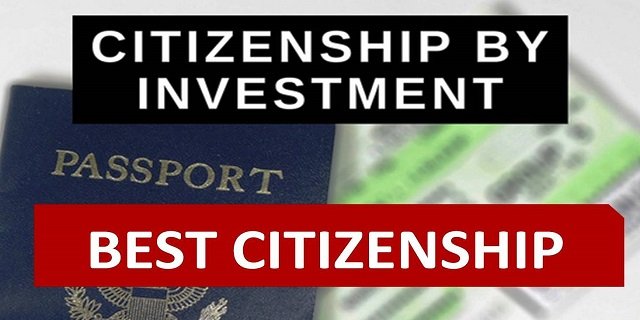Citizenship by investment is an increasingly popular option for individuals seeking a second passport and visa-free travel. The program allows you to secure citizenship in exchange for a significant contribution to the country’s societal advancement, cultural development, or economic growth.
Generally, this is done by investing in real estate or government bonds. The investment amounts and terms vary from country to country, but the process is very straightforward.
How it Works
Investing in second citizenship can be one of the most important decisions you make for your family. It can increase global mobility and offer protection against political instability and economic turmoil by granting you access to many visa-free countries.
Grenada citizenship by investment act is a legal status that confers several rights and privileges on its holders, including the right to travel, live and work in any country with which they have citizenship. As a result, the concept of dual citizenship has become increasingly popular among investors and their families.
The process for obtaining a second citizenship through investment varies widely from country to country. The first step is selecting an authorized agent. Citizenship by Investment Units (CBI) typically channel all applications through these agents, which will assist you with the application process and provide advice on preparing for due diligence. Submitting your official documents, completing background checks, and conducting interviews can take up to a month or two.
Once you have passed due diligence, the final stage is to submit your passport application to the CIU and pay any required fees. Once your citizenship is approved, you can begin enjoying the benefits of a Caribbean passport. These include visa-free travel to the world’s most desirable destinations and the security of being a citizen of a stable, high-income country.
Requirements
Several countries offer economic citizenship programs that grant passports in exchange for significant monetary contributions. These programs often come with various benefits, including increased freedom to travel, access to better health care and education, lower taxes, and various investment opportunities.
Consider your goals and objectives before deciding on a program to invest in. It is important to know how much capital you are willing and able to invest, whether or not you would like to include your family members in the application, and your desired level of risk. A skilled advisor can help you determine the best options for you and your family.
Once you have determined your goals, you can select the country and program that align with your requirements. There are many factors to consider, such as a country’s tax rates, culture, language, lifestyle, and business opportunities. It would help to consider the long-term benefits of acquiring citizenship or residency through investment.
In addition to a monetary contribution, some programs require philanthropic donations.
Fees
Citizenship by investment programs offers high net-worth individuals the opportunity to gain passports in exchange for a significant contribution to a country’s societal or economic development. These schemes usually require applicants to donate a set amount of capital and invest in the economy for a minimum period, with some requiring additional residency requirements. Those who want to enjoy the benefits of dual citizenship can opt for these options to expand their travel freedom and protect against instability or corruption in their home countries.
In some cases, investors participating in these programs can obtain their passports months after making their initial investments. This is much faster than traditional methods of obtaining immigration status. Moreover, the investment required for these programs is often considerably lower than what would be required for an immigrant visa through traditional channels.
For example, in the United States, the EB-5 visa offers investment-based immigration to qualified candidates. Upon completing the process, the investor can obtain a permanent green card after at least five years as a lawful permanent resident. This is a significantly shorter timeframe than the naturalization requirement for a US citizen, a minimum of five years after gaining lawful permanent residence. Citizenship is a status that confers privileges, conditions, and rights unavailable to residents, and children can inherit it.
Timeframe
If you’re a high-net-worth individual considering citizenship through investment, it’s important to understand the different existing programs. Each program has its unique requirements and benefits. The CBI index is a useful resource for individuals looking to compare different options and make the right choice for their needs.
Many countries offer economic citizenship to investors who meet specific criteria. These programs are often based on creating new employment opportunities or preserving existing ones. The EB-5 visa is another option for investors seeking to become global citizens. This immigrant investor visa requires a minimum investment of $1.8 million. However, this threshold can be lowered to $900,000 if the investment is made in a targeted employment area.
Once an EB-5 visa holder becomes a lawful permanent resident, they can apply for naturalization after five years. This process involves passing a civics exam and an interview. In addition, EB-5 visa holders must have been physically present in the United States for at least two and a half years without any absence longer than 180 days.
Read more interesting articles on Tech new master

















